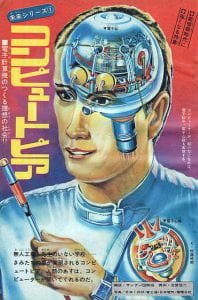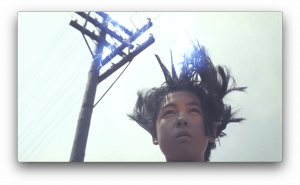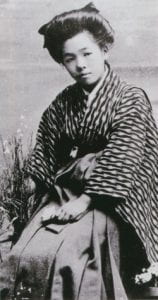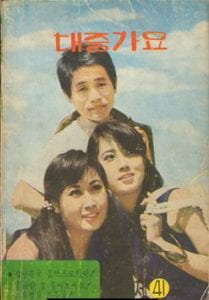Author: scwalker2
4/23 Yiren Zheng
Ph.D. Candidate, EALC
Impossible Echo:
Whistling as Poetic Expression in Seventeenth-Century China
Time: Friday, April 23, 3-5 pm CT
Zoom Registration: https://uchicago.zoom.us/meeting/register/tJ0lduCtrj4oGNCA5_qiFdBFa2CJ8ALDwof-
Discussant: Jiayi Chen, Ph.D. Candidate, EALC
For our first meeting of spring quarter, the Art and Politics of East Asia (APEA) workshop is proud to host Yiren Zheng (Ph.D. Candidate, EALC), who will present her paper, “Impossible Echo: Whistling as Poetic Expression in Seventeenth-Century China.” She summarizes her paper as follows:
This paper examines a turning point in the Chinese literary history of whistling that took place during the seventeenth century. Whistling, once sonorously reverberating in social spaces during the Six Dynasties, gradually disappeared as a sound. It continued to thrive as a poetic trope whose sonic implication became tenuous at best. During the seventeenth century, a number of authors, including Pan Zhiheng (1556-1622) and Chen Ding (1650-?), imagined whistling as a sound immediately audible in their own times despite the fact that whistling had been a lost sound for centuries. For example, Pan portrays the singing of certain courtesans as whistling in a number of prose essays; Chen depicts whistling as an apocalyptic event (alluding to the fall of the Ming dynasty) that viscerally disturbs not only the listeners but also the whistler in a literary biography entitled “Biography of the Old Whistler.” Collectively, these authors made a noteworthy intervention in the literary imagination of whistling by employing the method of simulation: presenting an imaginary scenario as if it was the lived reality while blurring the boundary between simulated reality and actual reality. This paper argues that the simulated whistling offers a space for these authors to address real-world concerns that are otherwise repressed or unacknowledged.
This paper is the main part of one of my dissertation chapters. The chapter also observes how these seventeenth-century writings enrich pre-modern Chinese discourse on whistling and in turn our understanding of poetics. During the Six Dynasties, the heyday of whistling as a sonic art, whistling was understood as a subversive poetics where speech is displaced by sound and meaning-making displaced by semantically free echoing. Starting from the fourteenth century, writers began to consider whistling as a nonverbal means of expressing one’s interiority, which is parallel to speech. The seventeenth-century depictions of whistling found a balance between using whistling to resist speech and language and assimilating whistling into the linguistic order. By tracing the discourses with which these seventeenth-century writings on whistling are implicitly in dialogue, this chapter ponders what it seventeenth-century authors gained by animating an absent sound.
Yiren Zheng is currently finishing her dissertation as a residential fellow at the Franke Institute for the Humanities and a Ph.D. candidate in the East Asian Languages and Civilizations at University of Chicago. Her dissertation explores several extralinguistic forms of communication, including whistling and talking birds, and theoretical insights they inspired in seventeenth-century literary texts written in classical Chinese. Her journal article, “Listening Askance with a Seventeenth-Century Chinese Acousmatic Voice,” has recently appeared in Parallax.
Protected: Dr. Alexander Zahlten’s paper
3/12 Dr. Alexander Zahlten
Professor of East Asian Languages and Civilizations, Harvard University
Systemic Paranoia: Media Intensification in Japan
Time: Friday, March 12, 3-5 pm CT
Zoom Registration: https://uchicago.zoom.us/meeting/register/tJ0lduCtrj4oGNCA5_qiFdBFa2CJ8ALDwof-
Discussant: Sophia Walker, Ph.D. Student, EALC and CMS
The Art and Politics of East Asia (APEA) workshop is proud to host Dr. Alexander Zahlten (Professor of East Asian Languages and Civilizations, Harvard University) who will present his paper, “Systemic Paranoia: Media Intensification in Japan.” He summarizes his paper as follows:
This paper understands the occult boom – a media phenomenon in Japan stretching from the 1970s to the 1990s – as a vernacular media theory that expresses, commodifies, and frames the anxieties and cognitive responses to the pressures of intensifying media connectivity. The occult boom is also a political response to the perceived failure of the Japanese left in the late 1960s/early 1970s, and an attempt to formulate a different strategy, and to understand the political challenges differently. The occult boom also can be understood as a fundamentally paranoid theory that attempts to make sense of the new connective totality, but leads into a logic of catastrophe, with in turn catastrophic consequences in the 1990s.
Alexander Zahlten is professor of East Asian Languages and Civilizations at Harvard University. His work focuses on popular film and media in Japan and East Asia from the 1960s to today. His publications include the co-edited volume Media Theory in Japan (Duke University Press, 2017, with Marc Steinberg) and the book The End of Japanese Cinema (Duke University Press, 2017). He is especially interested in the dynamics of intensified media ecologies, and his recent work touches on topics such as the relationship of electricity and film or ‘amateur’ film and media production. Between 2002 and 2010 he was program director for Nippon Connection Film Festival, the largest festival for film from Japan.
Protected: Alex Murphy’s Chapter
3/5 Alex Murphy
Ph.D. Candidate, EALC
Enchantment of Politics, Poetics of Enchantment
Time: Friday, March, 3-5 pm CT
Zoom Registration: https://uchicago.zoom.us/meeting/register/tJ0lduCtrj4oGNCA5_qiFdBFa2CJ8ALDwof-
Discussant: Anthony Stott, Ph.D. Student, EALC/Comparative Literature
The Art and Politics of East Asia (APEA) workshop is proud to host Alex Murphy (Ph.D. Candidate, EALC), who will present his dissertation chapter, “Enchantment of Politics, Poetics of Enchantment.” He summarizes his chapter as follows:
This chapter concerns the advent of radio poetry in interwar Japan, and its role in the aural poeisis of public life at the outset of the Shōwa period. Following the 1923 Kantō earthquake, a prominent consortium of poets turned to oral recitation in order to channel the turbulent rhythms and sonorities of social life that seemed so far to elude expression in print, and to the emergent technology of radio broadcast as a means of harmonizing these disparate intensities toward a communal sense of “public resonance.” In so doing, however, the poets of this growing recitation movement had also to reckon with the politics involved in shaping the radio’s emergent listening public, especially as the escalation of acclamatory social movements signaled a more polyphonous body politic than the state was willing to accommodate. What the movement’s advocates proposed, then, was a mode of recitation that might, through various formal refinements, convey the impression of an informal, unadorned poetic voice—one shorn of embellishment, polished down to its most genuine and universal essence. By the same token, however, I argue that this mode of recitation served thereby to naturalize, or enchant a narrower political vision of post-quake public life by staging the state’s attenuations of audible speech—the filtration of dissent, opacity, or innuendo—as steps toward a radiogenic ideal of clarity, neutrality, and noiseless transmission.
Alex Murphy is a PhD candidate in the Department of East Asian Languages and Civilizations at the University of Chicago, focusing on modern Japanese literature and cultural history. His dissertation, entitled “What the Ear Sees,” deals with performance, sound media, and the politics of the voice in interwar Japan.
Protected: Helina Mazza-Hilway’s paper
12/4 Helina Mazza-Hilway
Ph.D. Candidate, EALC
“Suspended Across the Chasm: Husks and Other Lacuna in the Works of Mizuno Senko”
Time: Friday, December 4, 3-5 pm
Zoom Registration: https://uchicago.zoom.us/meeting/register/tJIvduGrqjoiHNONWLZEQF_K9VEyZAiOXI7T
Discussant: Nick Ogonek, Ph.D. Student, EALC
The Art and Politics of East Asia (APEA) workshop is proud to host Helina Mazza-Hilway (Ph.D. Candidate, EALC), who will present her dissertation chapter “Suspended Across the Chasm: Husks and Other Lacuna in the Works of Mizuno Senko” this Friday. She summarizes her chapter as follows:
In this portion of my second dissertation chapter, I trace the image of husk – that is, a cast-off skin or carapace – as it pertains to feminine hysteria in Mizuno Senko’s 1913 short story “Husk”. Utilizing the work of Luce Irigaray on hysterical women, I show how Mizuno offers a voice to the female hysteric and elucidates upon the seemingly cryptic symptoms of hysteria. Ultimately, I argue that Mizuno develops through the image of husk a kind of ‘hysterical subjectivity’ which complicates any easy understandings either of hysteria or of representations of women’s consciousness in Taishō-era fiction.
Protected: Ethan Waddell’s paper
11/13 Ethan Waddell
PhD Student, EALC
“Loose Harmonies in Cold War South Korea: Sin Chung-hyŏn and the Rise of Psychedelic Rock”
Photo citation: Sin Chung-hyŏn and the Pearl Sisters on the cover of the magazine Popular songs (Taejung kayo che 41-chip, [1969])
Time: Friday, November 13, 3-5 pm CT
Zoom Registration:
https://uchicago.zoom.us/meeting/register/tJYlcuGtqjsvGt1MgyeyiA_F_wJDTl-qA3L2
The Art and Politics of East Asia (APEA) workshop is proud to host Ethan Waddell, (Ph.D. student, EALC), who will present his paper, “Loose Harmonies in Cold War South Korea: Sin Chung-hyŏn and the Rise of Psychedelic Rock“ this Friday. He summarizes his paper as follows:
This paper explores the aesthetics and conditions for reception and production of South Korean psychedelic rock between 1968-1975, focusing on the genre’s primary figure, Sin Chung-hyŏn (1938-). I consider psychedelic music in an emergent youth culture, specifically in relation to the discovery of tradition, pursuit of dissociation and commodification of sex. In this way I hope to cast a wider spectrum for analysis of rock music defined as psychedelic and other contemporaneous texts from popular literature and media, allowing us to move beyond dominant formations of masculinity and essentialized notions of culture that have often gone overlooked in the discourse of hybrid rock authenticity.





